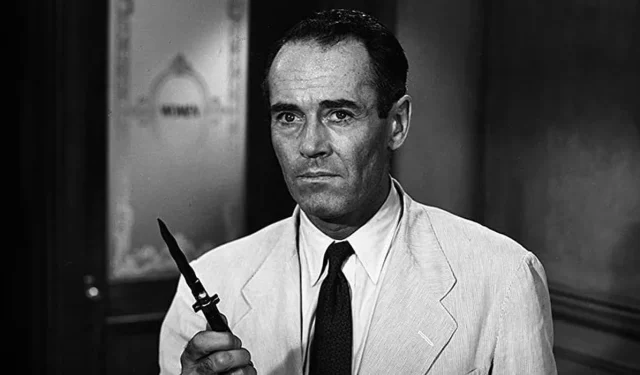
Exploring the Impact of Character Dynamics in 12 Angry Men
12 Angry Men stands as a landmark in the genre of courtroom drama, encapsulating the intricate dynamics of a jury during deliberations. The entire narrative unfolds within a single jury room, where twelve jurors, referred to only by their numbers, grapple with the monumental task of determining the fate of a teenage boy accused of murdering his father. Initially, only Juror 8, portrayed by Henry Fonda, votes “not guilty,”much to the dissatisfaction of his peers who perceive the case as straightforward. As the story progresses, the jurors begin to reassess their positions, led by thoughtful dialogue that compels them to challenge their preconceptions, ultimately arriving at a not guilty verdict.
Fonda’s Influence in 12 Angry Men not only shines through his performance as Juror 8 but also extends to his role as the film’s producer. He effectively embodies a character who neither claims the defendant’s innocence nor insists on guilt, but rather advocates for a thorough examination of the evidence. The film juxtaposes fact against personal biases, revealing the intricate societal and psychological factors influencing each juror’s decision. With its intense debates and character arcs, 12 Angry Men resonates as powerfully as an action film.
1 Juror 9
Initial Vote: 10-2 in Favor of Guilty
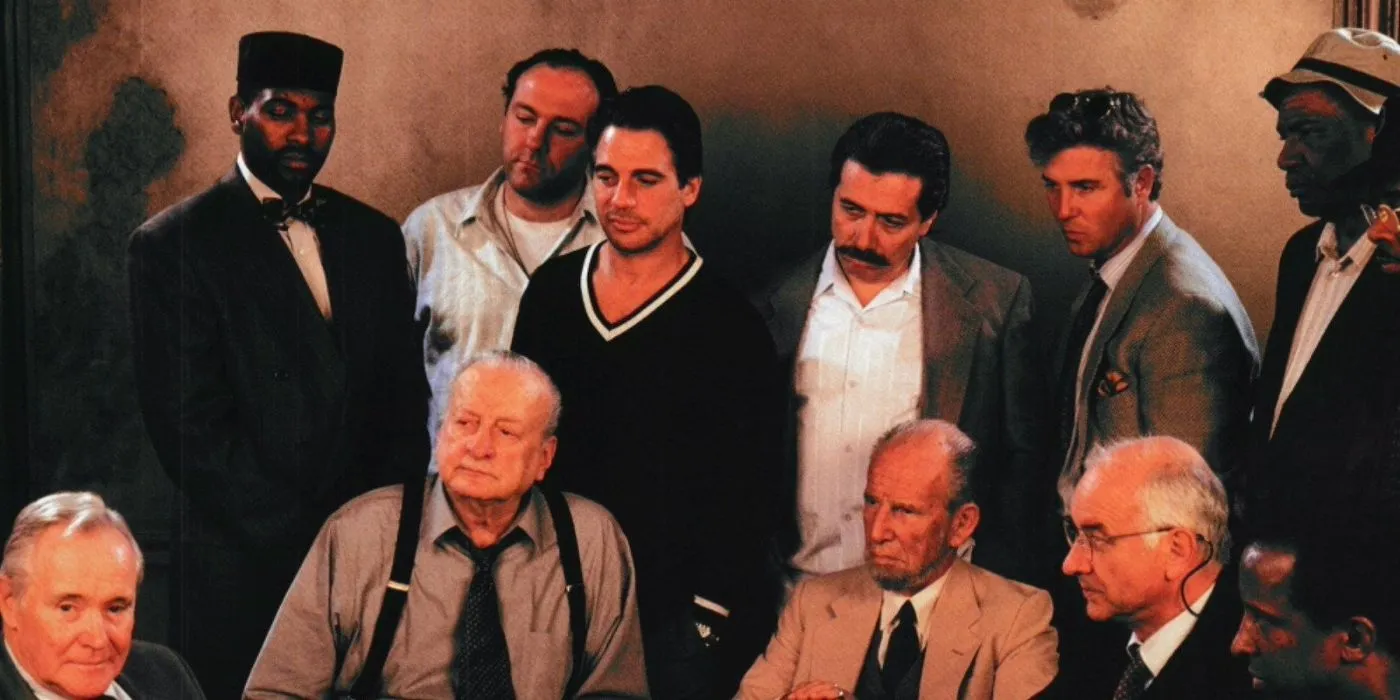
Juror 9, portrayed by Joseph Sweeney, emerges as a reflective and observant older gentleman throughout the deliberations. His keen insights into the behaviors and potential motivations of the witnesses serve as critical turning points in the discussion. He highlights how the key witness’s apparent nasal marks suggest she may not have been wearing her glasses during the critical moment of the alleged crime, thus undermining her testimony.
Although initially leaning towards a guilty verdict, he respects Juror 8’s insistence on giving the defendant due consideration. Juror 9 becomes the first among the jurors to switch his vote from guilty to not guilty, boldly stating, “It’s not easy to stand alone against the ridicule of others,”exemplifying the moral courage required in such scenarios.
2 Juror 5
Initial Vote: 9-3 in Favor of Guilty
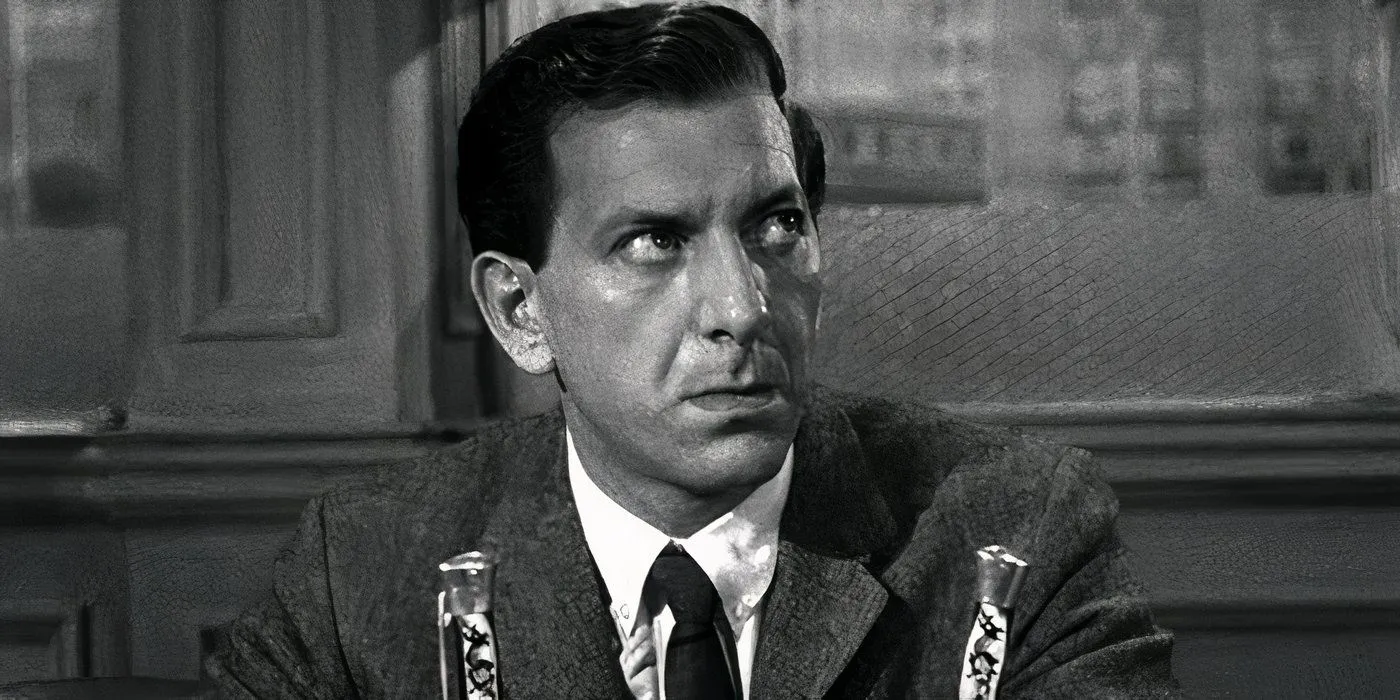
Juror 5, played by Jack Klugman, identifies deeply with the defendant due to their shared backgrounds. His experiences growing up in a troubled environment allow him to recognize the underlying prejudices exhibited by other jurors. During the discussions centered around the knife wounds, Juror 5 draws upon his familiarity with street fights to challenge the prosecution’s assertions, indicating that the manner in which the knife was described is implausible for someone with his history.
3 Juror 11
Initial Vote: 8-4 in Favor of Guilty
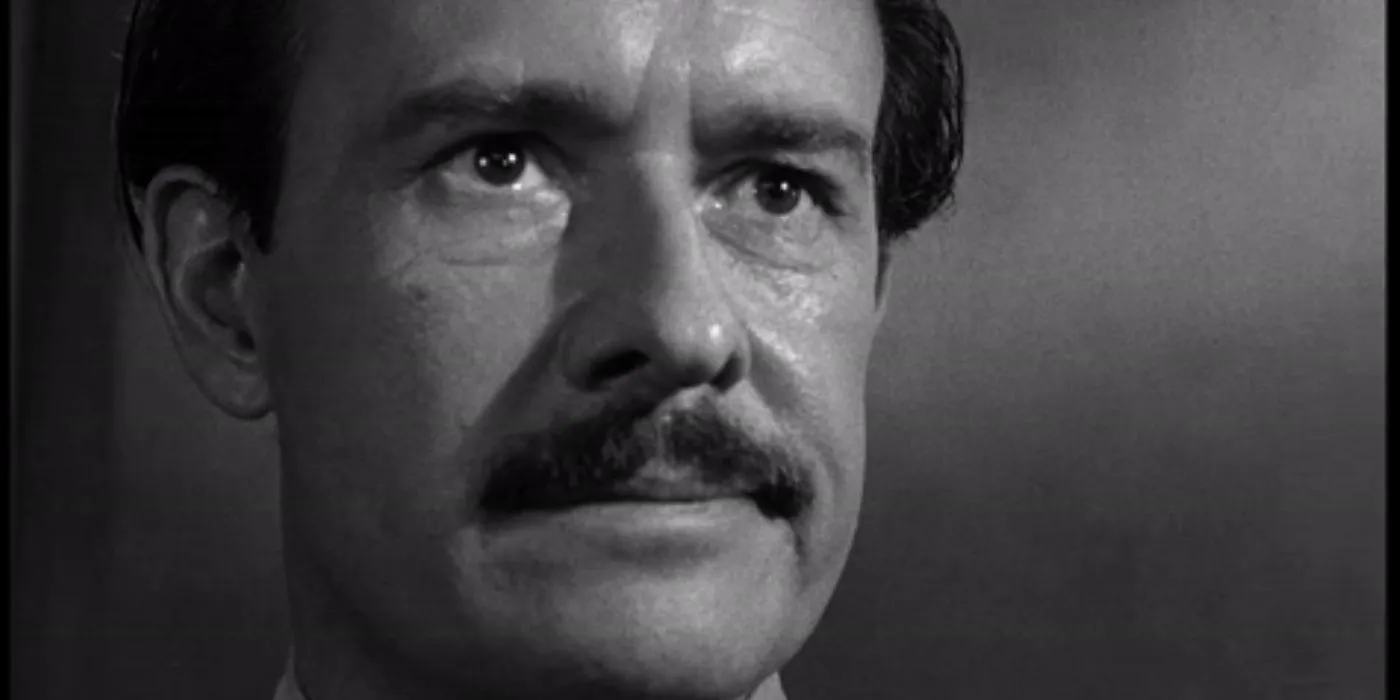
Juror 11, represented by George Voskovec, embodies civility and a strong commitment to democratic principles. His observations often illuminate the vital importance of the judicial process, insisting on fairness and rationality amidst the chaos of personal biases and emotional outbursts.
After thorough discussions questioning the credibility of witness testimonies, Juror 11 ultimately concedes to reasonable doubt, stating the challenges of identifying specific voices amid the clamor of an elevated train’s noise, compelling him to shift his vote to not guilty.
4 Juror 2
Initial Vote: 6-6 Even
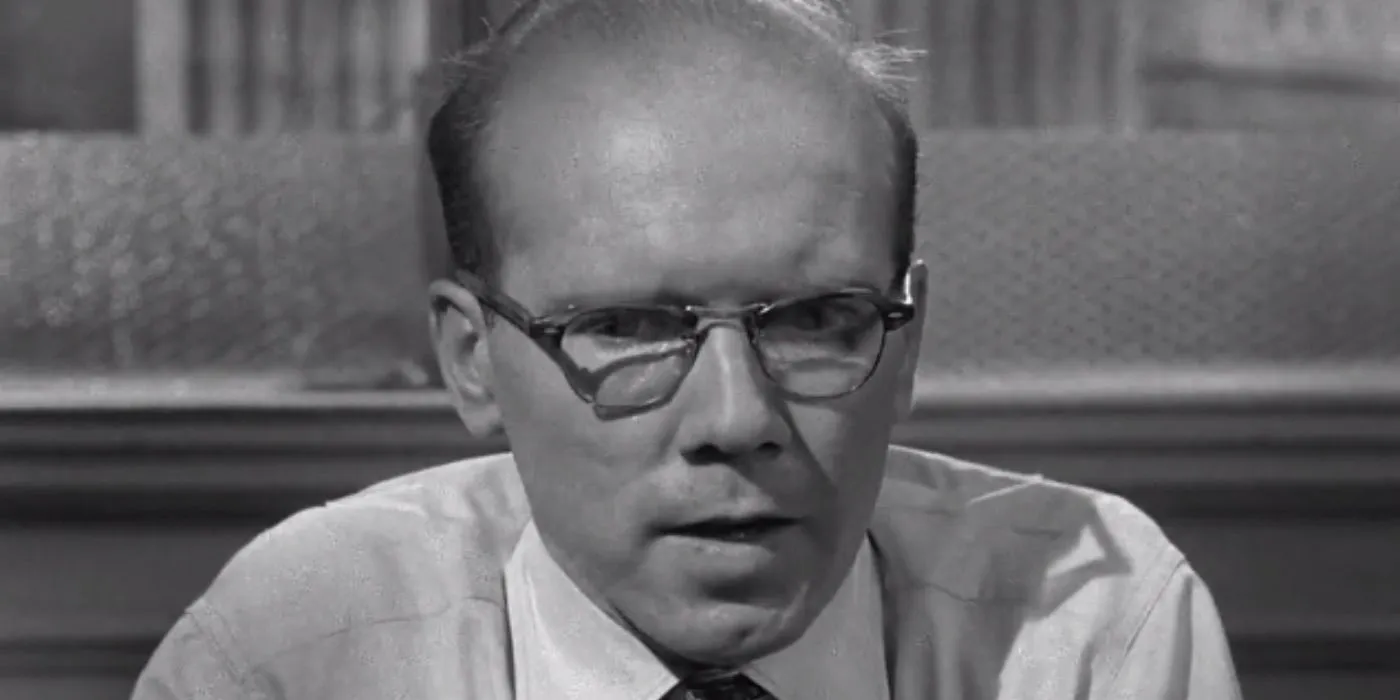
Juror 2, brought to life by John Fiedler, presents as rather timid and prone to agreeing with more vocal jurors. Throughout the pivotal discussions, he gradually finds the confidence to articulate his perspectives. His pivotal vote change occurs when Juror 8’s insights about common expressions of anger lead him to recognize the potential misinterpretations surrounding the defendant’s alleged threats.
5 Juror 6
Initial Vote: 6-6 Even
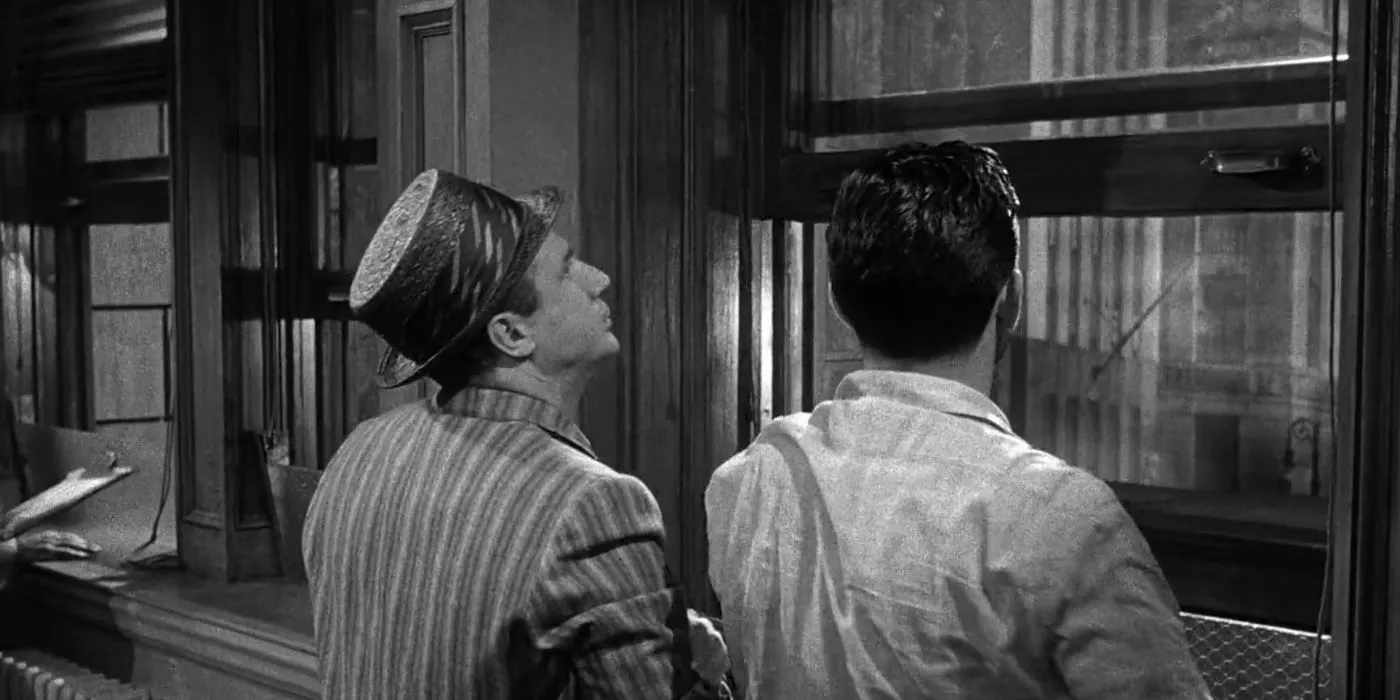
Juror 6, portrayed by Edward Binns, upholds a strong sense of duty towards his fellow jurors, especially the elderly members. With a moderate demeanor, he accommodates others’ opinions while remaining open to new ideas. His vote transitions to not guilty after Juror 8 elucidates the discrepancies in the eyewitness account, ultimately revealing the importance of credible testimony in securing a fair verdict.
6 Juror 7
Vote: 7-5 in Favor of Acquittal
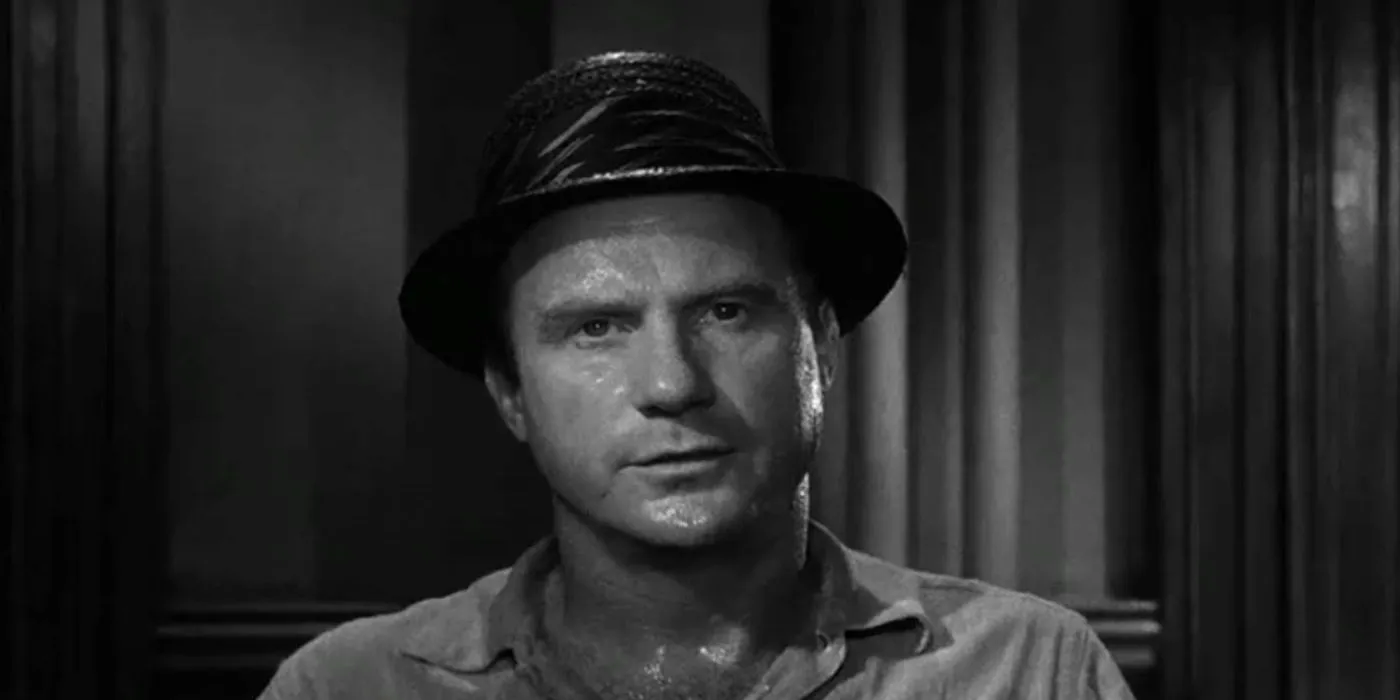
Juror 7, acted by Jack Warden, leverages humor to mask his true disinterest in the trial, preoccupied with outside distractions. His vote shifts in alignment with the prevailing sentiments; however, he admits to being reluctant to engage fully, which presents a stark contrast to the more impassioned jurors.
7 Juror 1
Vote: 8-4 in Favor of Acquittal
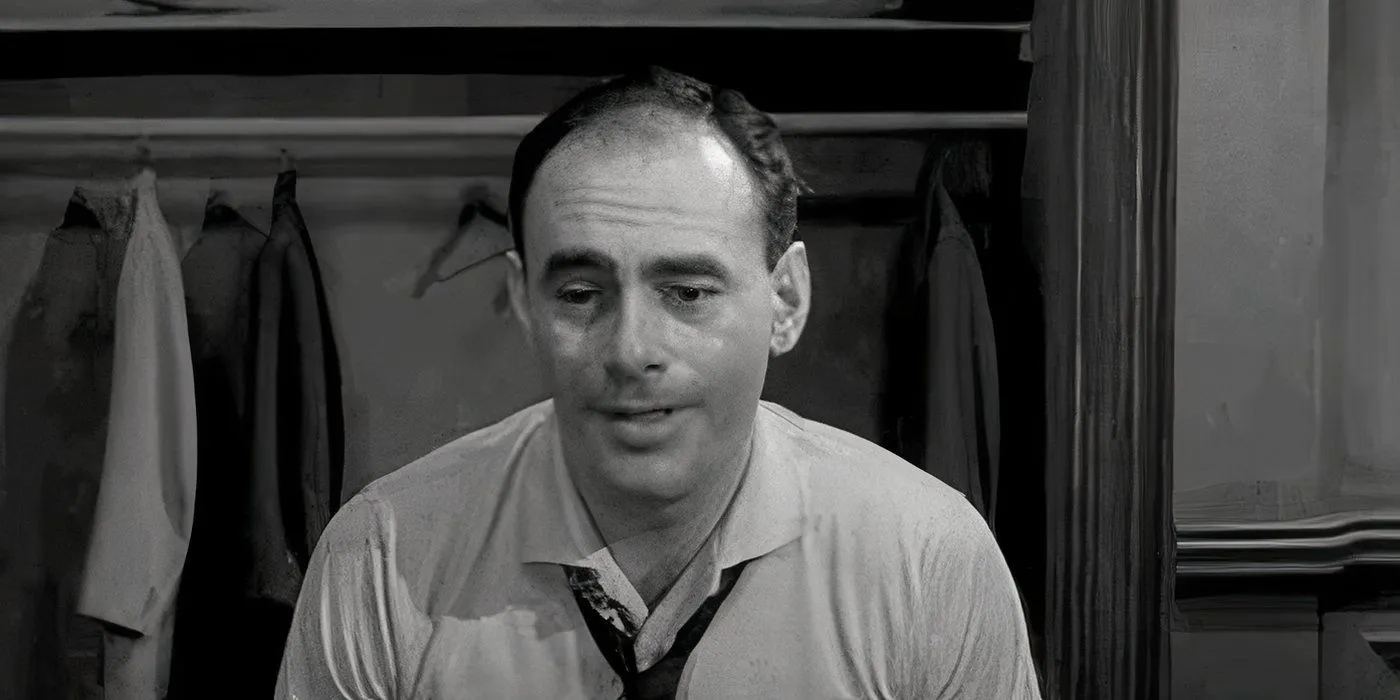
Juror 1, played by Martin Balsam, serves as the jury foreman, striving to maintain order and facilitate fair discourse. While generally reserved, he asserts his influence when needed. He shifts his vote following discussions that point out the implausibility of the defendant’s stabbing angle, emphasizing how facts must reign supreme in the deliberation process.
8 Juror 4
Vote: 11-1 in Favor of Acquittal
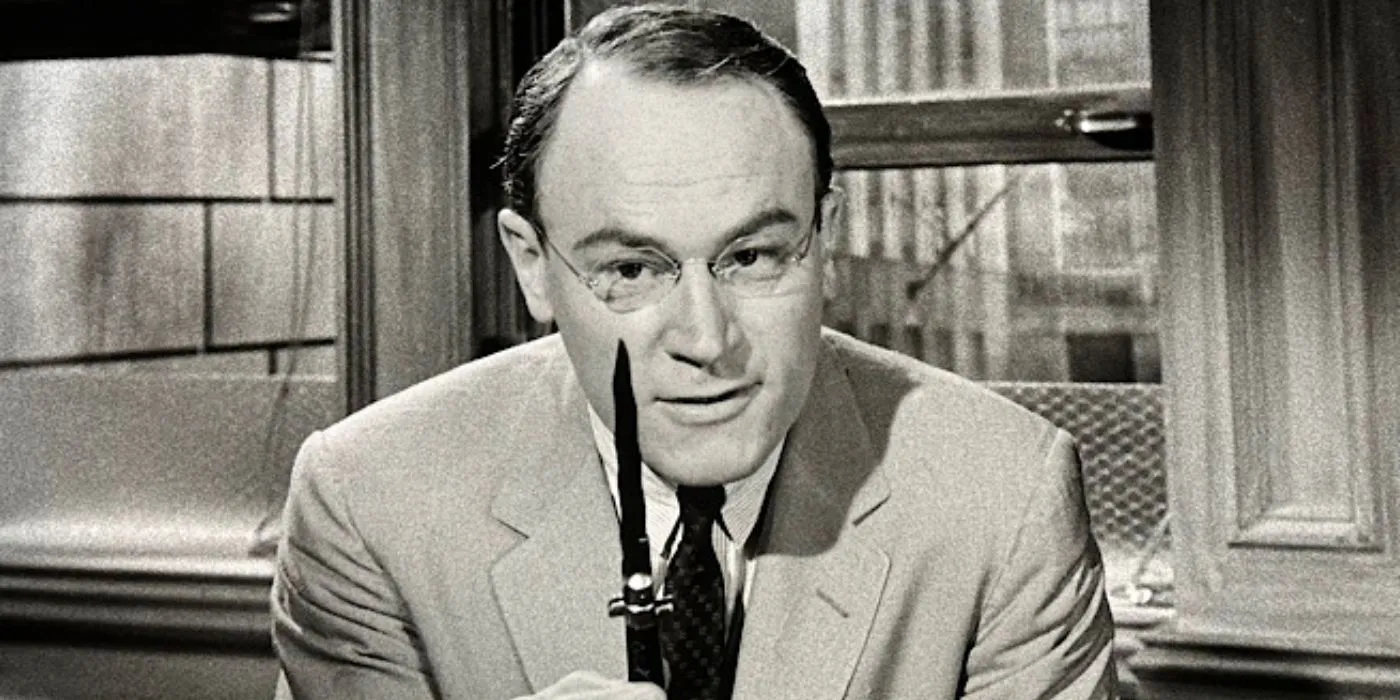
Juror 4, played by E.G. Marshall, approaches the case with a critical mindset, focusing on factual evidence. His analytical nature often leads him to dismiss emotional appeals, believing strongly in the importance of eyewitness testimony. However, the realization that the key witness may not have been wearing glasses while observing crucial events serves to shift his perspective, ultimately guiding him to a not guilty vote.
9 Juror 10
Vote: 11-1 in Favor of Acquittal
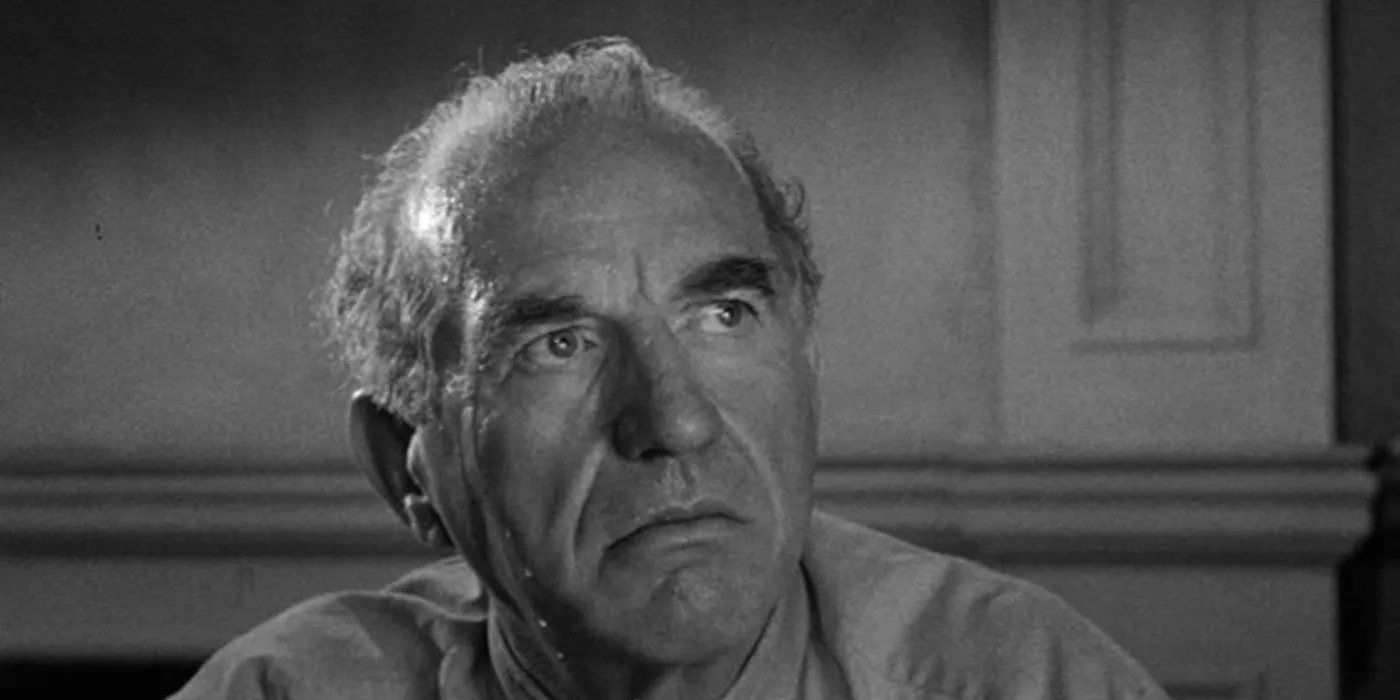
Juror 10, embodied by Ed Begley Sr., embodies prejudice and bias against the defendant from the outset. His overtly racist comments reflect his character’s nature, which serves to alienate him from the other jurors. Ultimately, his tirade leads to a reaction that prompts several jurors to rethink their positions, contributing significantly to the shift towards an acquittal.
10 Juror 12
Vote: 11-1 in Favor of Acquittal
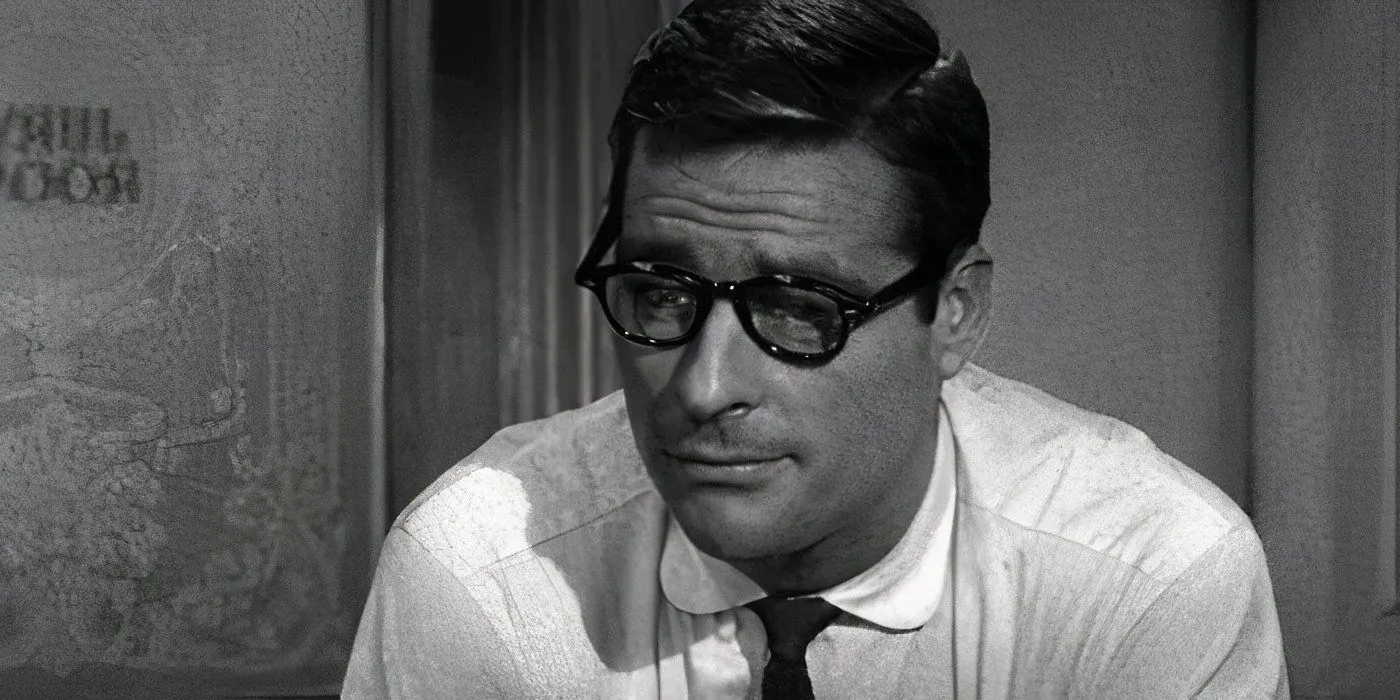
Juror 12, portrayed by Robert Webber, represents the distracted and often indifferent perspective in the jury’s discourse. Although he experiences significant fluctuation in his vote, initially being undecided, his struggle illustrates a commitment to understanding the facts more comprehensively. His eventual shift reflects an inner effort to contribute meaningfully to the deliberative process.
11 Juror 3
Vote: 12-0 in Favor of Acquittal
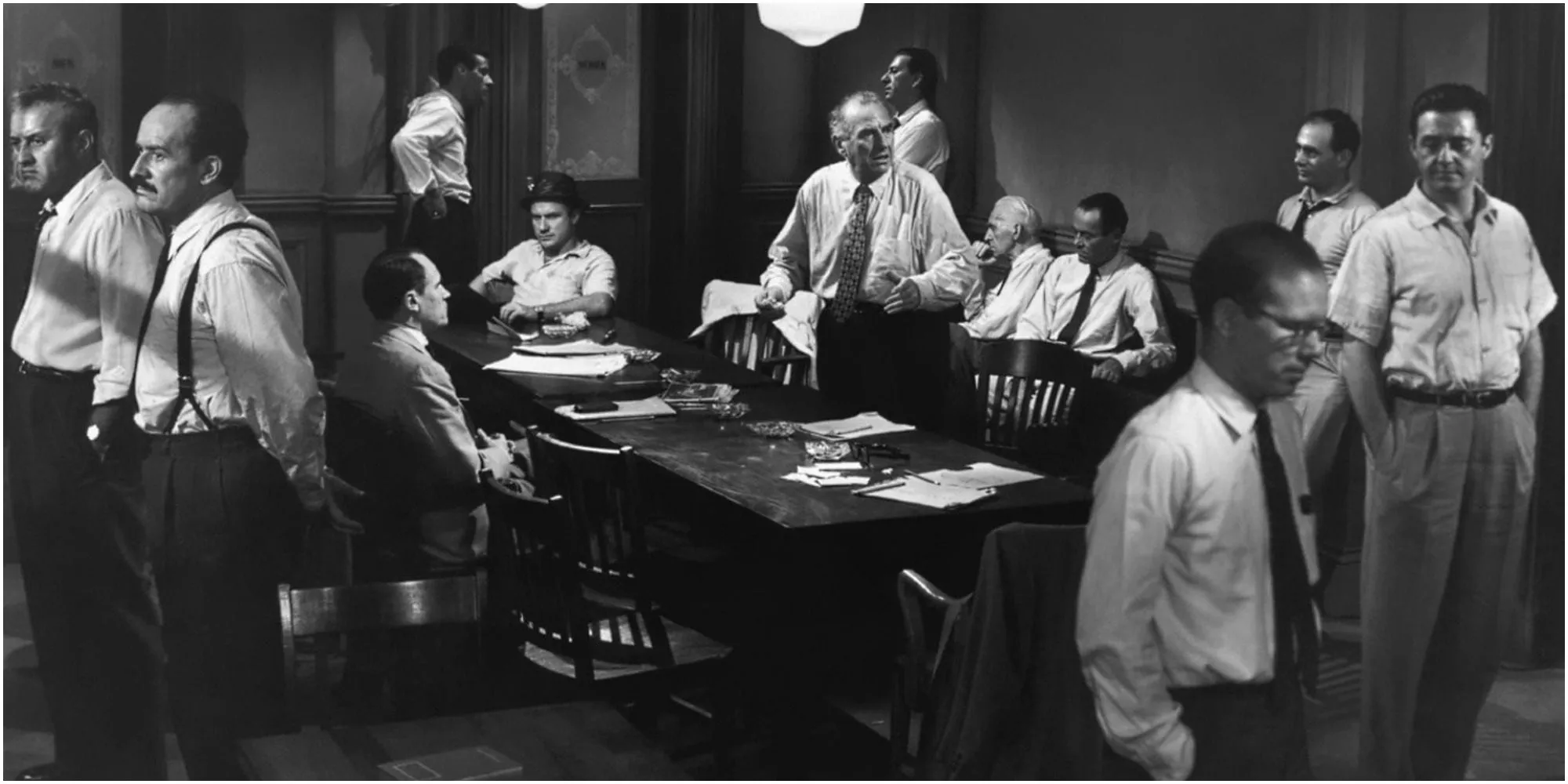
Juror 3, played by Lee J. Cobb, stands out as a fiercely opinionated character, embodying the role of the antagonist. His experience with his own troubled relationship with his son profoundly influences his vehement advocacy for a guilty verdict. However, the emotional turmoil and the revelation of his own biases culminate in a crucial moment of vulnerability that leads him to finally abandon his previous stance and vote for acquittal.




Leave a Reply